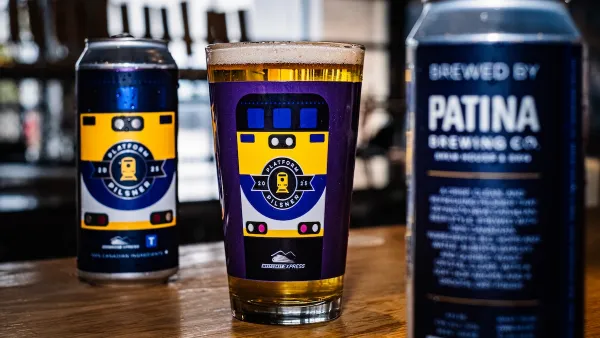The movement to dismantle the twin viaducts that hover over Vancouver's downtown reaches a crucial milestone today, as the City Council votes to fund the study of how to transform "the last, large, under-utilized area close to the city’s core."
"The bold proposal to tear down Vancouver’s twin viaducts, which have carried traffic to and from the downtown for more than 40 years, is gaining significant steam," reports Rod Mickleburgh. "Council is expected to vote Wednesday to give city planners a green light to proceed with serious studies and public consultation for the project, with once-loud opposition increasingly muted as the idea takes hold."
“'This is a turning point, not just a small step,' said senior planner Brian Jackson, as he discussed details of a comprehensive staff report outlining the many benefits of demolishing the busy, elevated structures."
"The decision would free up five city blocks for renewal, providing space for increased parkland and as many as 1,000 new housing units, including 300-400 subsidized apartments," notes Mickleburgh. "It would also re-connect neighbourhoods to False Creek and revitalize a section of Main Street lost when the viaducts went up."
In an opinion piece for HuffPost British Columbia, Brent Toderian, the city's former Director of City Planning and long-time advocate of viaduct removal, urges the Council to "approve the removal 'in principle' subject to the further work outlined in the report, rather than the recommended up-to-two-year delay in decision-making."
"Ultimately," he says, "this powerful decision isn't about cars or concrete. It's about making a more connected, sustainable, resilient downtown and city."
FULL STORY: Momentum builds for removal of Vancouver viaducts

Planetizen Federal Action Tracker
A weekly monitor of how Trump’s orders and actions are impacting planners and planning in America.

Restaurant Patios Were a Pandemic Win — Why Were They so Hard to Keep?
Social distancing requirements and changes in travel patterns prompted cities to pilot new uses for street and sidewalk space. Then it got complicated.

Map: Where Senate Republicans Want to Sell Your Public Lands
For public land advocates, the Senate Republicans’ proposal to sell millions of acres of public land in the West is “the biggest fight of their careers.”

Maui's Vacation Rental Debate Turns Ugly
Verbal attacks, misinformation campaigns and fistfights plague a high-stakes debate to convert thousands of vacation rentals into long-term housing.

San Francisco Suspends Traffic Calming Amidst Record Deaths
Citing “a challenging fiscal landscape,” the city will cease the program on the heels of 42 traffic deaths, including 24 pedestrians.

California Homeless Arrests, Citations Spike After Ruling
An investigation reveals that anti-homeless actions increased up to 500% after Grants Pass v. Johnson — even in cities claiming no policy change.
Urban Design for Planners 1: Software Tools
This six-course series explores essential urban design concepts using open source software and equips planners with the tools they need to participate fully in the urban design process.
Planning for Universal Design
Learn the tools for implementing Universal Design in planning regulations.
Heyer Gruel & Associates PA
JM Goldson LLC
Custer County Colorado
City of Camden Redevelopment Agency
City of Astoria
Transportation Research & Education Center (TREC) at Portland State University
Camden Redevelopment Agency
City of Claremont
Municipality of Princeton (NJ)



























